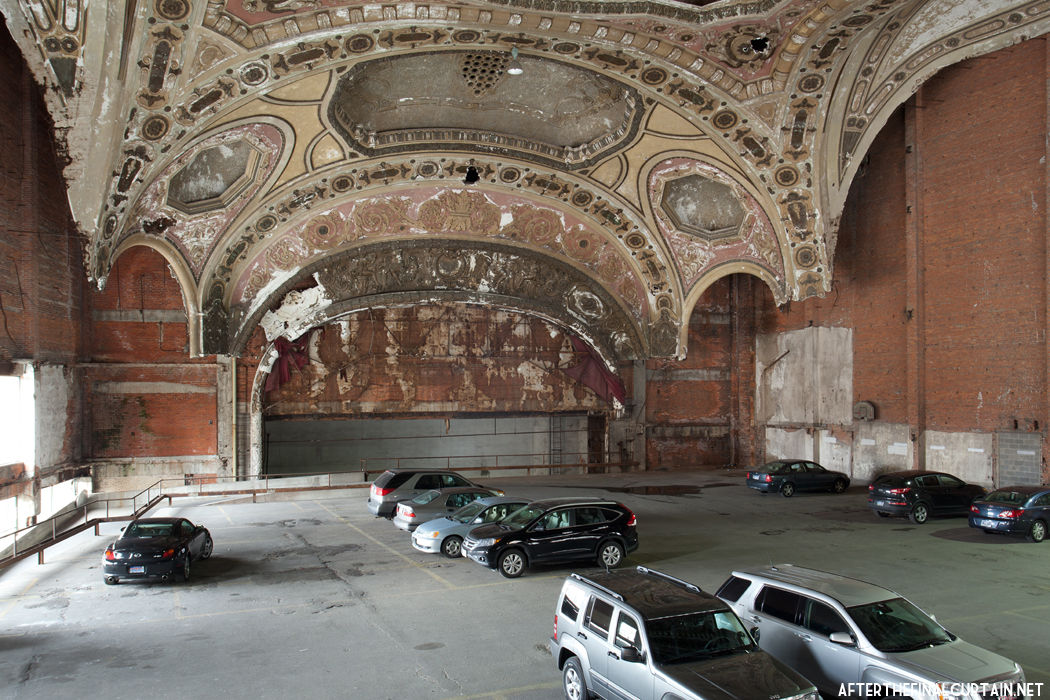- 20 Mar 2015 23:07
#14538490
Below I have translated an excerpt from Herta Mueller’s latest book “My homeland was an apple pip” (Mein Vaterland war ein Apfelkern). Herta Mueller grew up as part of the German speaking minority under Ceaucescu’s dictatorship in Rumania. She received the Noble Price in Literature in 2009.
“The shop window in the mind
This ubiquitous ugliness was the only equality under socialism. And it was intentional; it was part of the program of the dictatorship. We lost the will to live because of the goods manufactured under socialism: concrete buildings, furniture, curtains, crockery. As if all the materials, whether cement, wood, glass, porcelain, even the branches, are in themselves brutal and vulgar, as if no beauty can be created from these materials. As if all the matter in this country jumps by itself into the state, into the will of the regime. The ugly equality depresses the mind, makes apathetic and undemanding; that is what the state wanted. For socialism the heaviness of mind was ideal; the joy of life makes people spontaneous and unpredictable. Misery makes ugly. Instead of meat, the state gave us waste products; pig feet with claws, the people called them sneakers; or chicken feet with claws and chicken heads that were doused with water and frozen together in heavy blue-red blocks of ice. They were hacked to pieces with an axe and divided in portions. The people carried them with their bare hands. In this misery, even a handkerchief did not help. On the way home, the ice was dripping, as if dogs were marking their territory with blood-stained urine. And for these waste products everyone had queue up for hours.
Socialism means the expulsion of beauty. Shortly after the regime changed, I saw that this systematic ugliness applied to all of Eastern Europe. Whether in Poland, the Czech Republic, Latvia, Slovenia, Bulgaria, everywhere the same miserable Romanian shop windows - yellowed paper napkins with lace pattern border, on top of them and arranged in a triangle, dusty fruit juice bottles, on both sides of the cabinet yellow-brown curtains and above all masses of fly shit. It is the shop window of the East; in all of these countries I felt a bit at home. Such a shop window is a way of life. It is depressive and it transmits its depression to all passersby on a daily basis. Even if you only look at it in passing, this shop window is already in the mind.
I think beauty is something to hold onto, it guards or protects us. Ugliness makes every environment repulsive; you cannot be at home in ugliness. If beauty is completely absent for a long time, gloom sets on the mind. People become totally defensive and aggressive. These are apparently quite different characteristics, but they both appear in the brutalization and are mixed in one and the same person. Perhaps one can only maintain ones balance in an unpredictable mixture of both. Just as there is also the mixture of absence and ecstasy. Or absence and despair. Or rapture and despair. I think all the characteristics had already been distorted long ago because of the hopelessness in which people had to live. They intensified into a psychosis, were vented and disappeared at will. It didn’t need a particular reason for anything; inside of me too, all states were latent. I was caught off guard by my own emotions.
Yes, I was thinking in images in everyday life, in thought images. I had trained myself to observe in order to protect myself, perhaps even from myself. It became a habit because it worked. I oriented myself at the outside so as not to tilt inward and to fall back on myself. And I know to this day that distraction works best through careful observation. I decided on a subject without intention, for example birthmarks. I counted them in the face, the neck of the passers-by, the longer I occupied myself with them the more they resembled pebbles grown on the skin. Or walking sticks like vanilla pods. I instinctively created an image which accompanied me. There was also beauty in that. Aesthetics is not merely “stylistic” but also substance. Aesthetics determines the content of all things, not just the sentence when writing."
“The shop window in the mind
This ubiquitous ugliness was the only equality under socialism. And it was intentional; it was part of the program of the dictatorship. We lost the will to live because of the goods manufactured under socialism: concrete buildings, furniture, curtains, crockery. As if all the materials, whether cement, wood, glass, porcelain, even the branches, are in themselves brutal and vulgar, as if no beauty can be created from these materials. As if all the matter in this country jumps by itself into the state, into the will of the regime. The ugly equality depresses the mind, makes apathetic and undemanding; that is what the state wanted. For socialism the heaviness of mind was ideal; the joy of life makes people spontaneous and unpredictable. Misery makes ugly. Instead of meat, the state gave us waste products; pig feet with claws, the people called them sneakers; or chicken feet with claws and chicken heads that were doused with water and frozen together in heavy blue-red blocks of ice. They were hacked to pieces with an axe and divided in portions. The people carried them with their bare hands. In this misery, even a handkerchief did not help. On the way home, the ice was dripping, as if dogs were marking their territory with blood-stained urine. And for these waste products everyone had queue up for hours.
Socialism means the expulsion of beauty. Shortly after the regime changed, I saw that this systematic ugliness applied to all of Eastern Europe. Whether in Poland, the Czech Republic, Latvia, Slovenia, Bulgaria, everywhere the same miserable Romanian shop windows - yellowed paper napkins with lace pattern border, on top of them and arranged in a triangle, dusty fruit juice bottles, on both sides of the cabinet yellow-brown curtains and above all masses of fly shit. It is the shop window of the East; in all of these countries I felt a bit at home. Such a shop window is a way of life. It is depressive and it transmits its depression to all passersby on a daily basis. Even if you only look at it in passing, this shop window is already in the mind.
I think beauty is something to hold onto, it guards or protects us. Ugliness makes every environment repulsive; you cannot be at home in ugliness. If beauty is completely absent for a long time, gloom sets on the mind. People become totally defensive and aggressive. These are apparently quite different characteristics, but they both appear in the brutalization and are mixed in one and the same person. Perhaps one can only maintain ones balance in an unpredictable mixture of both. Just as there is also the mixture of absence and ecstasy. Or absence and despair. Or rapture and despair. I think all the characteristics had already been distorted long ago because of the hopelessness in which people had to live. They intensified into a psychosis, were vented and disappeared at will. It didn’t need a particular reason for anything; inside of me too, all states were latent. I was caught off guard by my own emotions.
Yes, I was thinking in images in everyday life, in thought images. I had trained myself to observe in order to protect myself, perhaps even from myself. It became a habit because it worked. I oriented myself at the outside so as not to tilt inward and to fall back on myself. And I know to this day that distraction works best through careful observation. I decided on a subject without intention, for example birthmarks. I counted them in the face, the neck of the passers-by, the longer I occupied myself with them the more they resembled pebbles grown on the skin. Or walking sticks like vanilla pods. I instinctively created an image which accompanied me. There was also beauty in that. Aesthetics is not merely “stylistic” but also substance. Aesthetics determines the content of all things, not just the sentence when writing."

































 - By late
- By late